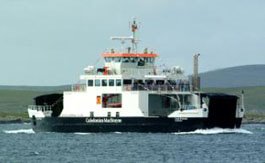Christian Aid recently launched an emergency appeal for East Africa where the United Nations reports that
11 million people are at risk of starvation in
Kenya, Somalia, Ethiopia, Tanzania and Djibouti."This is a crisis on the verge of becoming a catastrophe," said Dominic Nutt, Christian Aid's emergencies specialist in the region. "There are dead cattle everywhere and people have sold everything they have to buy food. These are the last few weeks that many people are going to be able to survive without help."
Norwegian Church Aid along with four other members of
Action by Churches Together (ACT) is also responding to the situation in
Kenya and issued an appeal to its members worldwide.
Church World Service, one of the members of the global alliance ACT, joined the effort to provide immediate food and water needs in the most affected communities.
Tearfund report that in some parts of East Africa it's a grim story. More than 6.5 million people in
north Kenya, south Ethiopia and Somalia need food aid urgently.
In 2005 the rains which normally fall from October until December failed. This followed two previous years of inadequate rainfall. Tearfund is funding partners to carry out food distributions.
Areas affected by this drought are mainly pastoral and farmers rely on their cows and goats for income. Due to the lack of rainfall, grazing land has been exhausted, animals are dying and those that remain are often so weak they cannot be sold. Some people keep camels, and even these ‘ships of the desert’ are struggling from lack of water.
To cope with the drought pastoral communities have been forced to sell their livestock. The price they can get is decreasing because of the state of the animals and also because so many people are trying to sell at one time. Consequently, they cannot earn enough money to buy food.
Some people have resorted to moving to urban areas in search of pasture and also to sell their livestock. There are reports that the lack of resources is leading to conflict, as people fight over grazing land.
Spring rains normally last from March until May. Thankfully, rain is falling in some parts of
Kenya. However, even if this rainy season is a good one, it will take a long time for farmers to fully restock their herds. The damage has already been done. Early indications suggest that the spring rains in Ethiopia will once again be poor.
And the crisis is spreading. Highland areas of
Ethiopia have so far escaped drought. But farmers in this area have not been able to begin planting his season because of poor spring rains.
World Vision reports that failure of rains has compounded a very fragile situation across the Horn of Africa. Much is dependant on the rainfall expected in April. Some improvement will happen if the rainfall is adequate, otherwise the numbers of people affected will escalate beyond what has already been identified.
General Food Distribution and non-food interventions will be targeted across the five countries affected - Somalia (2.1 million people affected), Ethiopia (2.6 million), Kenya (3.5 million), Tanzania (3.7 million) and Burundi (2.3 million).
World Vision, working with the World Food Program, will distribute food rations and supplementary nutritious food to vulnerable groups such as children and pregnant and breast feeding mothers.
World Vision is also: installing water points for communities and animals, providing seeds for the next planting season, installing latrines and improved sanitation facilities and providing shelter materials and household utensils for communities that have been displaced.
In the long term World Vision's focus is on Life Saving Initiatives and Disaster Mitigation.
Life Saving Initiatives will focus on the immediate need to save lives through the provision of: food, clean water, shelter materials and health.
Disaster Mitigation is a medium to longer-term approach and means assisting communities to detect, prepare for and respond to crisis themselves. World Vision works with communities to identify what hazards are facing them, limit the negative impact through appropriate activities (for example planting trees and creating terracing on slopes to hold in the soil and reduce mudslides).
Disaster Mitigation also means detecting crises early on to prepare accordingly. World Vision also works with communities to advise what to do in the early, mid and late stages of a crisis and to know where to get the right type of help from.

